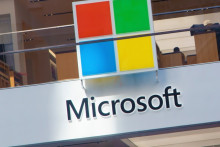The top ten password-cracking techniques used by hackers
Understanding the password-cracking techniques hackers use to blow your online accounts wide open is a great way to ensure it never happens to you.
You will certainly always need to change your password, and sometimes more urgently than you think, but mitigating against theft is a great way to stay on top of your account security. You can always head to www.haveibeenpwned.com to check if you're at risk, but simply thinking your password is secure enough to not be hacked is a risky position to take.













































































